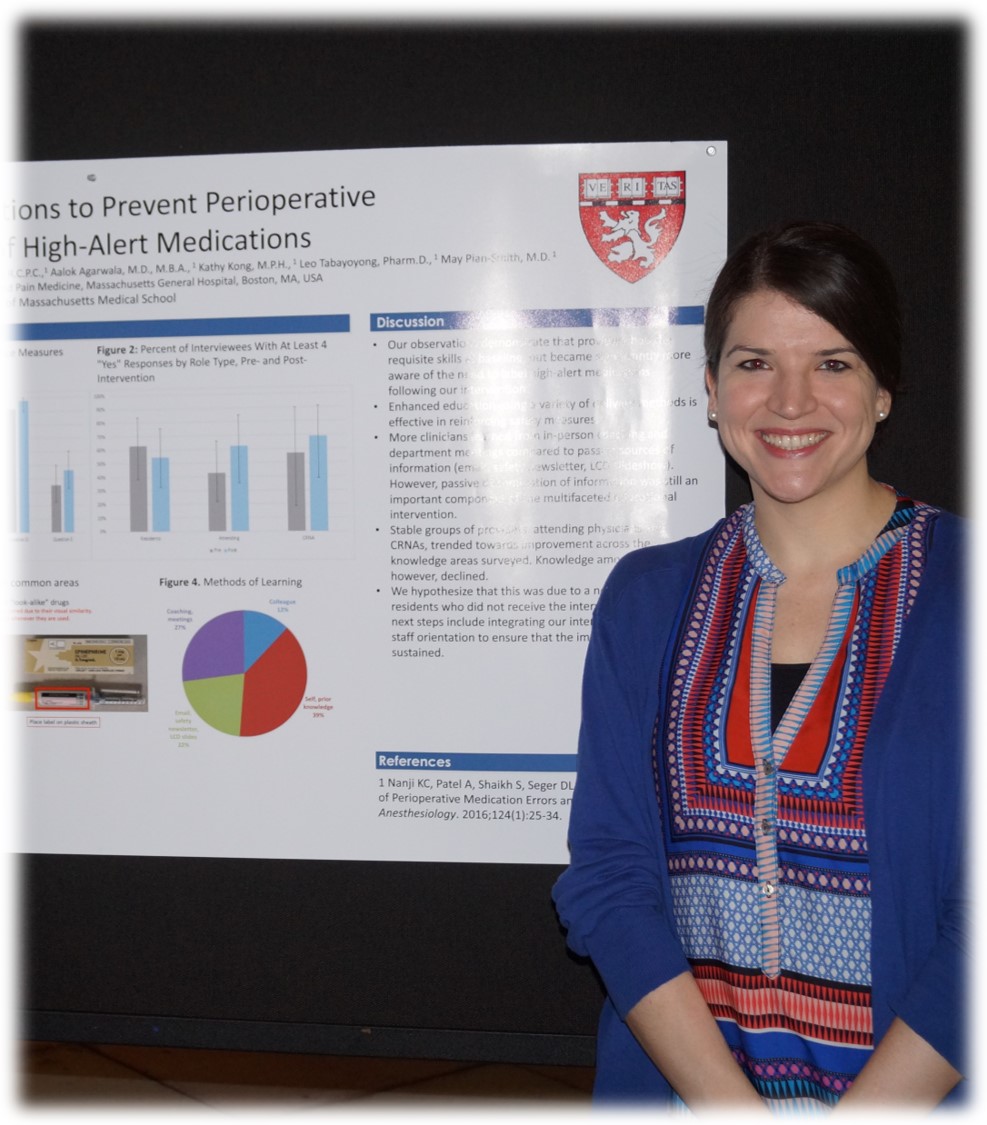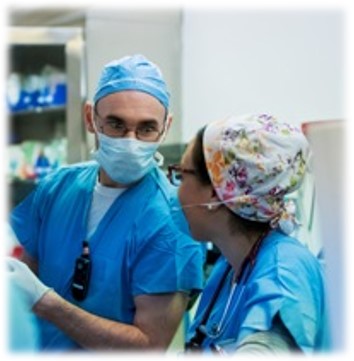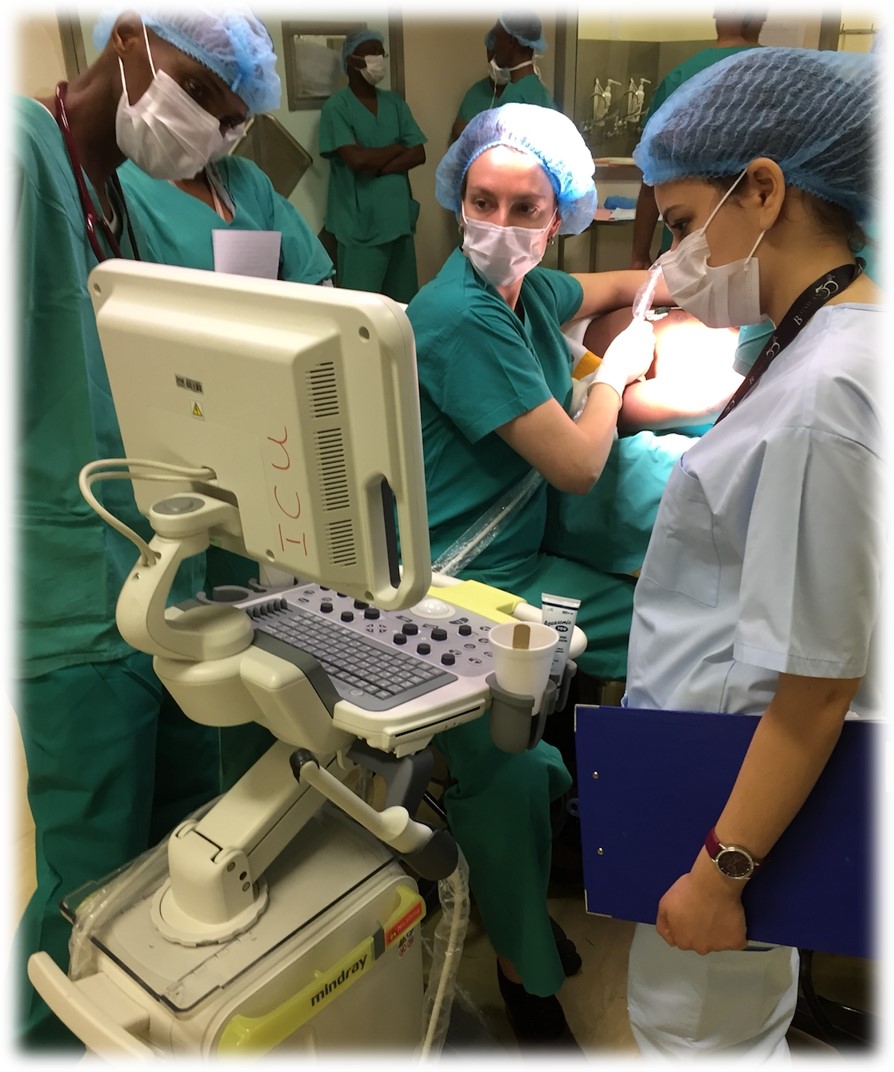Non-Clinical Development
Learn about our opportunities in research, quality and safety, medical education, global health, and administration.
Research
The MGH DACCPM leads the world in anesthesiology research.
- Five of 23 (22%) ASA Excellence in Research Awards since 1996 went to MGH researchers (Keith Miller, Warren Zapol, Clifford Woolf, Jeevandra Martyn, and Emery Brown).
- The interplay of patient care and science at MGH has stimulated translational developments such as inhaled nitric oxide, short acting nondepolarizing muscle relaxants, and new medical devices that benefit patients worldwide.
- The MGH receives more NIH research funds than any other independent teaching hospital.
Moreover, we have a steadfast commitment to developing our residents who have an interest in research.
Anesthesia Research Center (ARC)
The Anesthesia Research Center (ARC) brings together essential research resources within the Department of Anesthesia, Critical Care and Pain Medicine at Massachusetts General Hospital. Central to the department’s mission, ARC exists to support investigators throughout the research process in an effort to optimize study design and execution, regulatory oversight, and statistical methods for department investigations.
Funding for Resident Research
The Levy Resident Research Grants, established by a generous alumnus donation, aim to support the career development of outstanding DACCPM residents who wish to improve patient care through research. Recipients receive guidance and financial support for mentored research project. In order to provide residents experience applying for funding, the process is intended to model that of a typical grant application.
Travel Support Program
Our Travel Support Program provides financial assistance to cover costs of meeting travel, lodging and registration for participating residents. Residents participating in any capacity can take advantage of this during residency. Residents who are presenting original research can take advantage of this yearly.
CA3 Research Track
Our CA3 Research Track comes with six months dedicated to research during the final year of residency. Basic, translational, and clinical options are complimented by top-notch statisticians, an innovations lab and engineering group, and plenty of opportunities for presenting your work. This program is designed to function as an on-ramp to a career as a clinician-scientist, typically with mentored research training on the Harvard T32 as the next step (see below).
For residents who want an earlier entry to the research scene, we offer our PRIME (Pathway to Research Independence with Mentorship and Education) track. Read more about it here.
Research Career Development
,The department supports many routes for residents and staff to develop their full potential, from conducting patient studies with colleagues supported by the Anesthesia Research Center to becoming independent researchers running their own research teams.
We have an outstanding reputation for contributing to patient care through research. There are 175 research staff, supported by over 80 research grants, including 47 from NIH, working to produce annually over 200 journal articles and many book chapters. Among our many clinician–scientists, 30 hold externally funded research grants.
Please see this info sheet or see this talk by Dr. Stu Forman, our Director of Research Education for more information.
Patient Safety & Quality Improvement
In addition all department-wide offerings, all residents participate in an online curriculum, a QA Committee meeting, and “Resident M&M” (a novel resident-only M&M conference).
For residents who want to take it to the next level:
- We have paid for free access to all Institute for Healthcare Improvement courses.
- You can join our highly networked Center of Expertise in Healthcare Quality and Patient Safety, a center that is designed specifically to develop trainees across our institution with the tools and connections to be successful in QI and patient safety.
- You can apply to join the Department’s Quality and Safety Improvement Committee (QSIC), a process improvement group comprised of faculty, fellows, residents, CRNAs, nurses and administrative staff. It is very common to have device inventors, pharmacists and health information technology experts participate for input and collaboration. Learn more about this group in the article linked here (PubMed login required).
- You can participate in a QI Elective month. Residents who participate are mentored by the heads of the QA and QSIC Committees. The month is comprised of a set of specified readings and a resident-led project.
Check out this video, highlighting one of our recent resident-led QI initiatives, which won the national Anesthesia Patient Safety Foundation Resident Quality Improvement Award.


Medical Education
Informal opportunities include intra-operative teaching of our medical students during their anesthesia rotation, onboarding of our new residents prior to their one-on-one Tutorial, teaching and supervision of junior residents when taking on the First Call role, and plenty of didactic presentation opportunities.
Residents with deeper interest have a few more options:
- Harvard Macy Course for future academic clinician-educators: A three-day intensive course on skills in teaching and learning AND developing scholarship in medical education. Residents can apply Travel Support funding to cover the cost of participation in this program.
- Simulation Elective at the Center for Medical Simulation: This one-month senior elective allows interested residents immersive training in simulation and debriefing at this world-renowned facility.
- The Center of Expertise in Medical Education offers a number of resources to help promote education, education scholarship and education administration, designed specifically for trainees at our institution.
- Residents have ample opportunity to lead didactics and sessions during our day-long didactic days (“LEAP days”).
- Additionally, residents interested in Medical Education Scholarship can collaborate with one of several medical education researchers in the department.
Global Health
We have a number of incredibly invested faculty who have built their careers around Global Health, including joining to our highly networked Center of Expertise in Global and Community Health, a center that is designed specifically to develop trainees across our institution.
Interested residents can participate in one of two different types of Global Health experiences.
- Shorter trips: The focus of these 1-2 week trips is the provision of anesthesia care to overseas patients in need.
- Longer trips: These one-month trips focus on educating local caregivers to improve the quality of care for patients in the area long-term. These trips are co-sponsored by the SEA-HVO.
Recent international rotations have taken residents to countries including Botswana, Uganda, Rwanda, Ethiopia, the Philippines, China, Vietnam, Columbia and Peru.
There are two main scholarships offered nationally for anesthesiologists interested in Global Health, the SEA-HVO award and the ASA-GHO award. This past year, both were awarded to residents in our program!


Perioperative Administration
In addition to the first call role, senior residents who wish to take this to the next level can participate in a focused one-month long Perioperative Administration Elective, which allows residents a much deeper experience with many facets of administration. These include areas such as strategic planning, budget planning, and hospital resource triage.
Residents can also join the Center of Expertise in Health Policy & Management which is designed specifically for trainees to gain management in administrative and policy leadership in healthcare.
“Our goal is to foster a resource-rich environment that attracts the future leaders in anesthesia…”
Oluwaseun Johnson-Akeju, MD
Anesthetist-in-Chief
Centers of Expertise
A number of years ago, MGB developed the Centers of Expertise, with the goal of pooling resources across disciplines for resident development. They offer evening dinner sessions, funding opportunities, courses, network, and mentorship across forr areas of expertise:
-
Global and Community Health
-
Health Policy and Management
-
Medical Education
-
Health Care Quality and Patient Safety
These are all 100% free to residents in our program.
